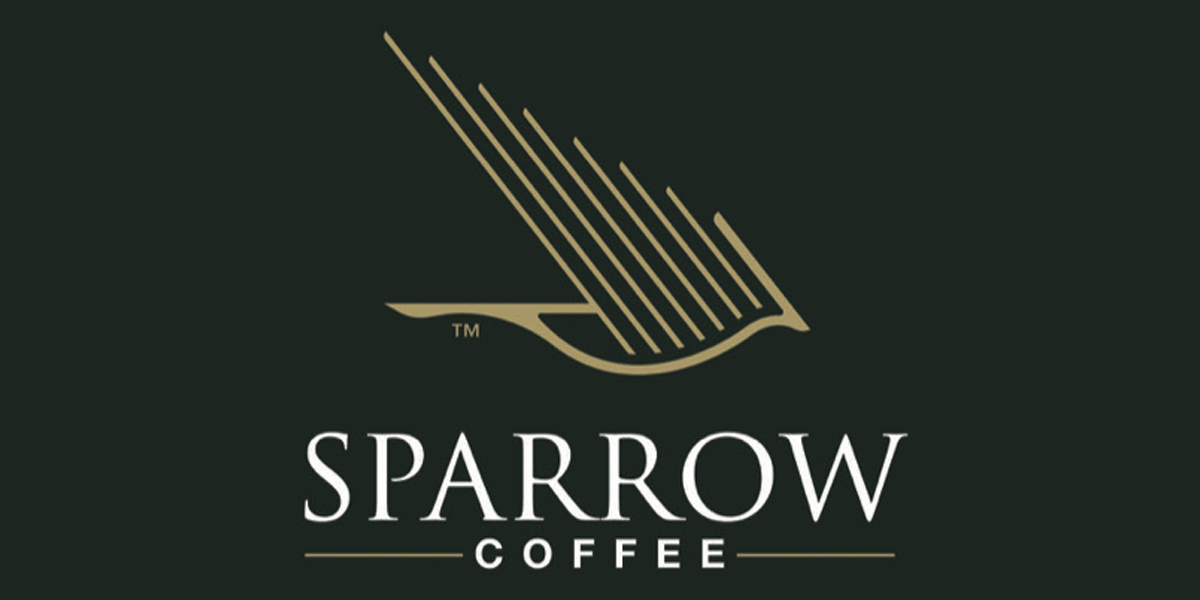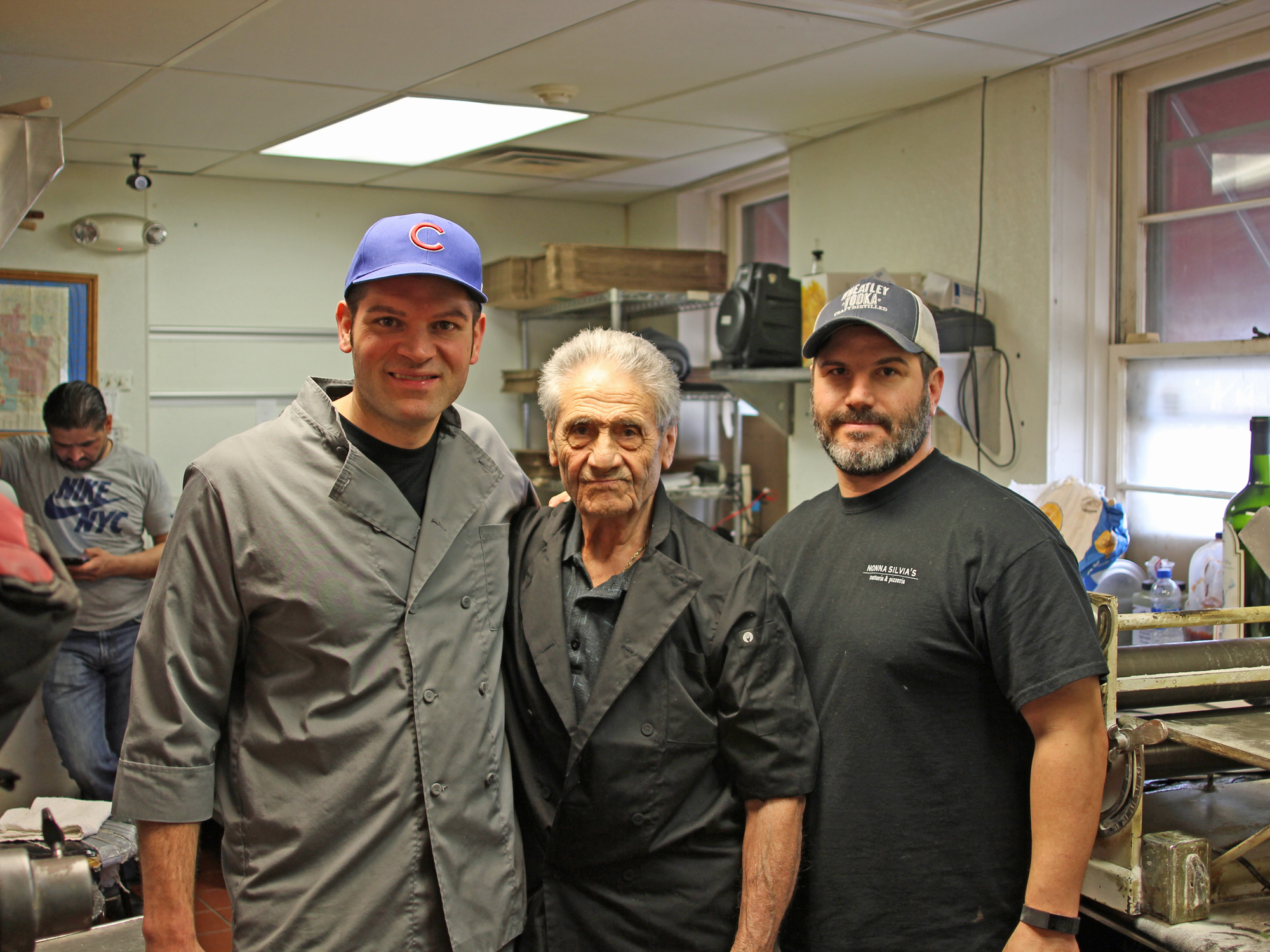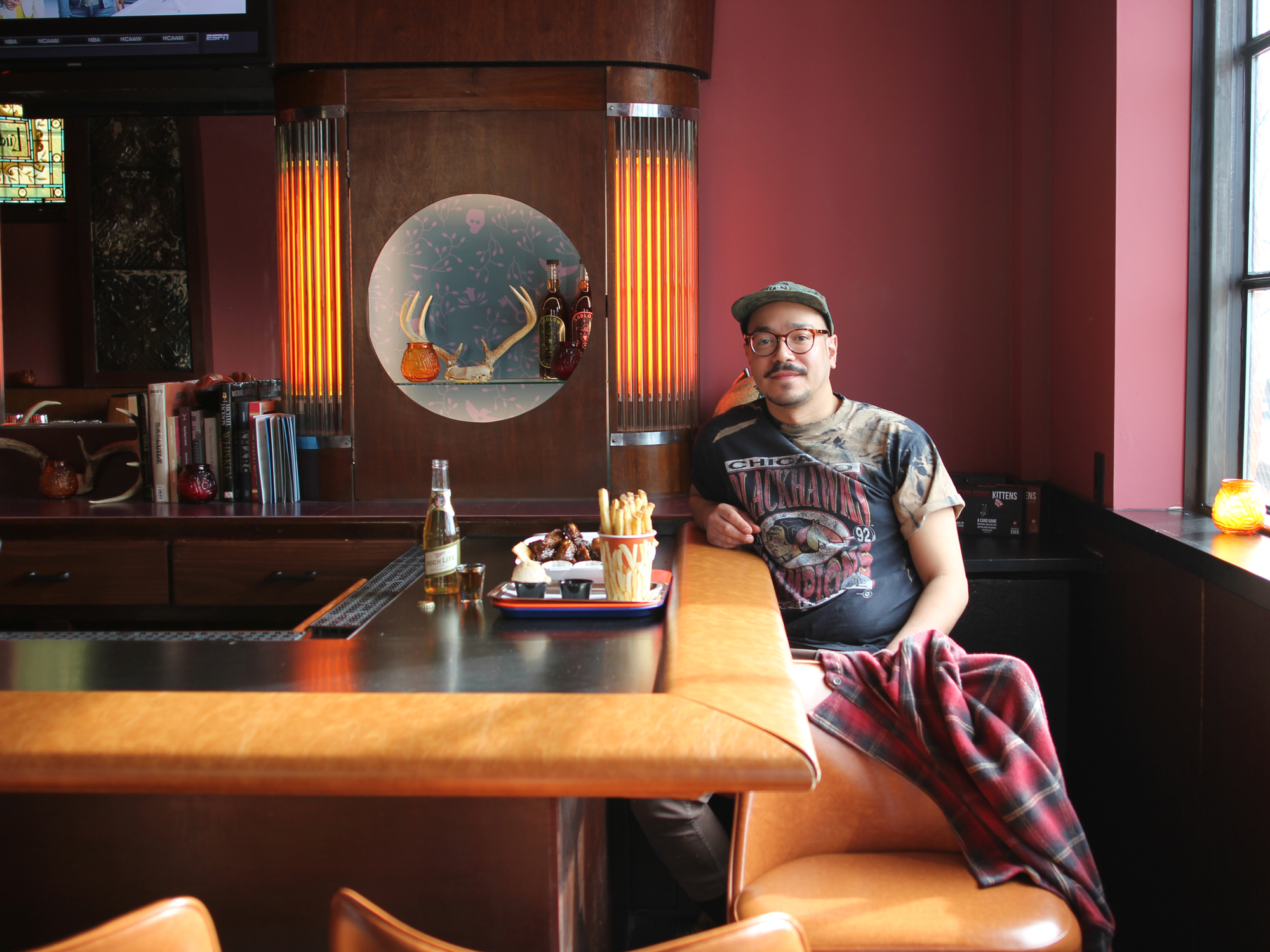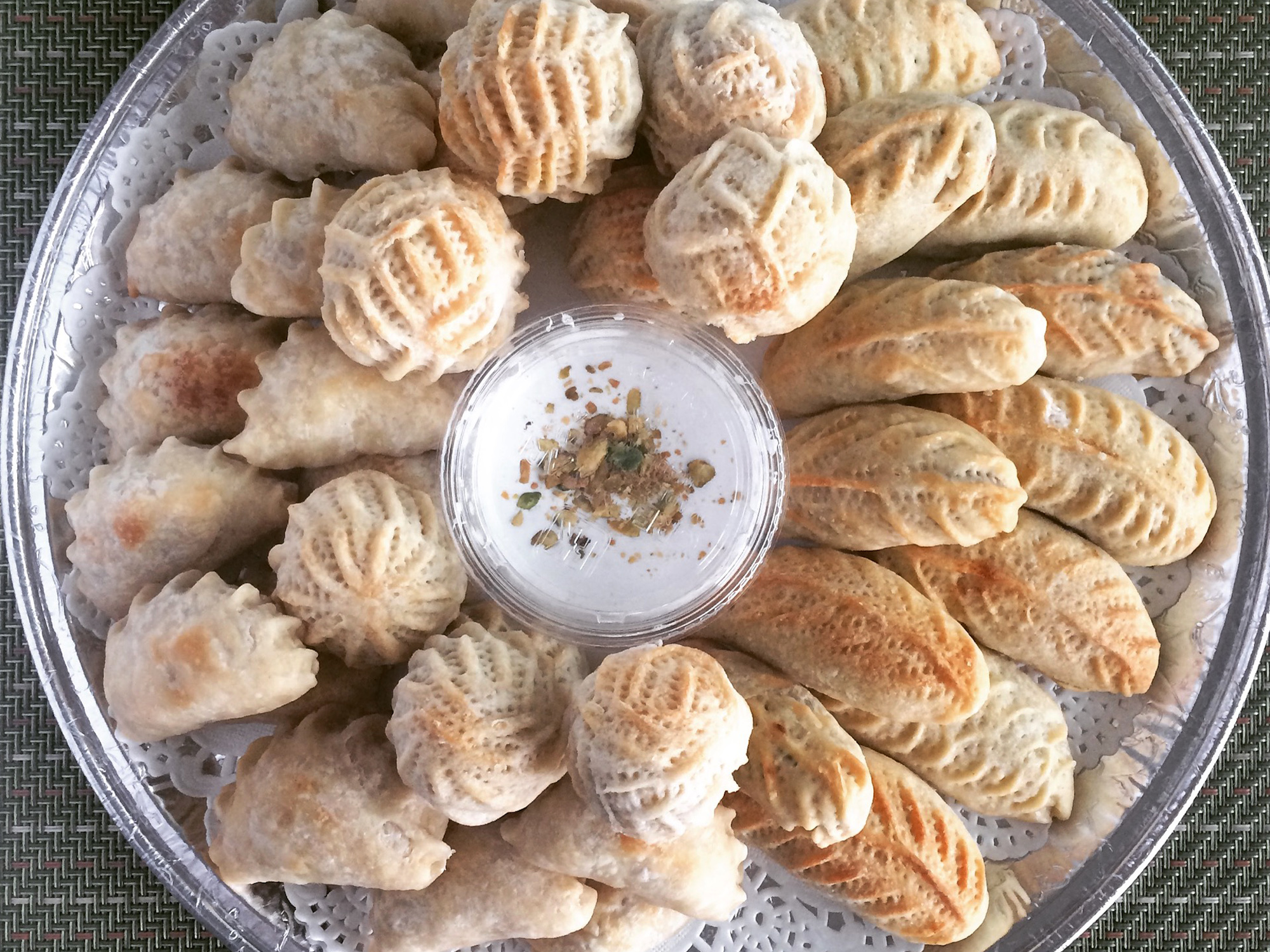THE WORD “HALAL,” WHICH REFERS TO Muslim dietary laws, is a common sight around Chicago at little groceries and restaurants in parts of the city where there are Muslim enclaves—Pakistanis near Devon, Palestinians and Jordanians in south suburban Bridgeview, and so on. But these immigrant commercial strips represent just a tiny portion of the Muslim community in the Chicago area, which numbers around 400,000, and a different side of it will be shown next weekend at Navy Pier with the I Heart Halal Festival, which organizers bill as the first-ever Halal lifestyle event in North America.
The glitzy lineup of activities is aimed at first-generation and internationally savvy Muslim-Americans, with cooking demos by Muslim chefs and bloggers with TV experience like Amanda Saab (MasterChef), Chicago-based food blogger Yvonne Maffei (who I interviewed about iftar, the breaking of the fast each night during Ramadan, for the Reader a few years ago) and Sameer Samast of the YouTube show Sameer’s Eats. There will be beauty and makeup sessions with Nura Afia, the first hijab-wearing CoverGirl Ambassador, and “Modest Fashion Shows,” produced by a fashion show producer from London.
There will be Muslim comics, and panel discussions on topics relating to Muslim life—such as “I Don’t Want To Be a Doctor,” which shows that Muslim kids of immigrants face the same family pressures that, for instance, the Chinese-American actor-comedian Jimmy O. Yang (Silicon Valley) talks about in his act. And there will be (this is Fooditor, after all) a food hall with about 15 stands including the popular chain Halal Guys, which chose Chicago as its first expansion market out of New York, OrganiSoul in Glendale Heights, Wok N Chop, offering Indo-Chinese fusion in North Park, Karahi Corner, a Pakistani restaurant on Devon, and Verzênay Patisserie, which sells at the Green City Market.
The festival is the idea of Asma Ahad, director of Halal Market Development at the not-for-profit Islamic Food and Nutrition Council of America, and event producer Salman Chaudry. Ahad was born in Chicago of parents from Hyderabad, India, and studied chemical engineering at the University of Illinois at Chicago. Going to work for Kraft, she presented a study on the burgeoning Muslim food market to top executives. “Growing up Muslim in North America, I grew up eating Oreo cookies and Philadelphia cream cheese,” she says. “But when I presented it to the then-president and executive board of Kraft, they were like, Wow, we didn’t realize that Kraft products like those were relevant to the Muslim consumer. There were a lot of ahas.”
Ahad’s conception of the festival’s purpose seems to be genially commercial and brand-savvy—the halal lifestyle is about bringing Muslims to American products, and products from the halal world to the mainstream market, for a society in which Muslims use as many cell phones and websites, follow as many trends, and eat the same Organic Valley yogurt as any other Americans. “You may think halal is not relevant to you, but it’s relevant to the global economy,” she says, and that’s all the reason anyone needs for a lifestyle festival.
The festival runs Friday, April 13 through Sunday, April 15 at Navy Pier; go to the I Heart Halal website to see the full schedule and get tickets. We spoke this week by phone.
FOODITOR: Tell me about the event, which you say is the first of its kind.
ASMA AHAD: This is the first-ever halal lifestyle festival in North America, and so it’s the first time we’ve done it as well.
I Heart Halal Festival is our attempt to create a platform that gives a voice to the halal consumer. There are two ways to look at this. One is, we looked at it religiously, people who adhere to halal standards—”halal” basically means “permissible” in Islam. And one of the things that they follow is a halal diet.
What we find in North America is that a lot of retailers and food manufacturers might not understand the need to carry halal foods for their consumers. I’ll give you an example in foodservice. We were approached by the University of Chicago, who had dining facilities available that were kosher and vegan. And they felt that that would meet the needs of the Muslim students on campus who follow halal.
The Muslim students came back to them and said, no, kosher and vegan don’t meet our standards, they don’t meet our dietary needs. Key macronutrient needs were not being met, for proteins. Now the University of Chicago has two halal foodservice stations on campus. They started reluctantly—they were worried that it would be cost-prohibitive—but now 21% of all meals sold on campus are sold through these two stations. Second only to hamburgers and hot dogs on campus. And yet the Muslim population on the campus of the University of Chicago is probably less than 5%, so halal is relevant to the general population, not just the Muslim population.
This is a great story because it tells you two stories. One is that when halal products are not available, halal consumers are not meeting their dietary needs. And the second piece is that halal is relevant beyond your traditional halal consumer. So this event is showing industry that there are consumers looking for halal, but it’s also demonstrating that there’s a broader market for halal.
What you have is an emerging population that’s young, that’s educated, that’s looking for things that resonate with their value systems.
There are whole industries in America that really rely on the halal community to thrive. The date industry in California—a majority of their production is used to meet the needs of the Muslim community. There’s a whole supply chain that the halal economy supports. There’s a whole economy around these foods, around modest fashions.
When I was working for Kraft, I was talking to a gentleman who was in charge of the middle east region for Tang. In Ramadan, you fast from dawn to sunset, and you’re not drinking anything. So you need a thirst-quenching beverage, fast, when you end your fast. And he told me, he starts the production of Tang at the end of one Ramadan to have enough for the next Ramadan.
So that’s where all the Tang went, I haven’t seen it since I was a kid.
Yeah, not in Chicago!
Halal is largely about food, but by positioning it as lifestyle, you’ve got a wider fashion and beauty component to it as well.
A lot of times people look at halal and think of it in terms of food. And there will be a lot of food at this event—we have a lot of halal foodservice vendors. OrganiSoul is going to be selling hamburgers there, we have some traditional Indian cuisine, some Mediterranean cuisine. We also have culinary demonstrations done by the most popular halal chefs in North America, many of them showing how you link ordinary products to halal cuisine—so we have Saffron Road and Organic Valley as sponsors. So that’s a key part of our event.
But halal beauty has really taken off, and there’s a lot of really great stories to be told. For instance, the first-ever, history-making hijabi—that means someone who wears a head covering—CoverGirl Ambassador, Nura Afia, is going to be leading beauty master classes. And she is going to be talking about putting your makeup on, using drugstore makeup versus high end makeup. We have a director of beauty for our event, her name is Ome Habiba, she is the top beauty blogger in Illinois and happens to be Muslim, and helped bring in Nura and NYX Cosmetics as a sponsor. So it’s really bridging the story between everyday Muslims and how they relate to the broader economy.
So who is the Muslim consumer in Chicago? Americans, I think, hear “Muslim” and mainly think the Arab world, but there are many more Muslim cultures around the world than that.
I don’t know what the ethnic breakdown is going to be at the event, but Chicago is probably home to one of the most diverse Muslim populations in the world. We have a strong Arab community, we have a strong Indian/Pakistani community, there’s a large African community, Somalia and Ethiopia and Nigeria. There’s also a large Hispanic community, a large Eastern European community, all which make up the fabric of the Muslim community in Chicago.
We’ve also brought on a director of interfaith outreach, her name is Eve Williams, and we’re also working on getting other groups involved such as the Chicago Theological Union, the Anti-Defamation League, the Chicago Holocaust Museum. We’ve reached out to all those people to join us for our events. The story of I Heart Halal Festival is that it’s all good, halal is about good, the goodness of halal doesn’t exclude anybody, we can all aspire to the values of halal.
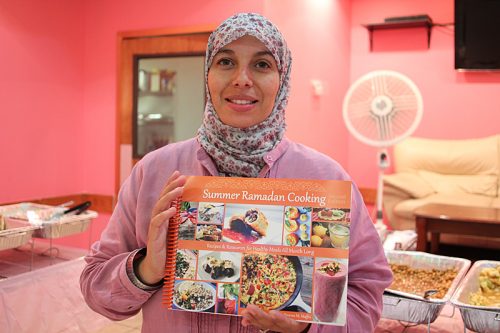 Michael Gebert
Michael Gebert Yvonne Maffei, blogger at MyHalalKitchen.com, will be one of the speakers at I Heart Halal
One of the things that struck me when I got the initial press release was that there’s a session called “I Don’t Want To Be A Doctor!” Which points to the fact that we’re talking about pretty upscale immigrant groups.
We’ve done a lot of background research into who makes up the Muslim population in America, and one of the things that we find is that a greater proportion of Muslims go to college than your average population. A study says that one in five Muslim households has either an M.D. or a Ph.D. And the average household income kind of moves in the same direction as their education level. So Muslims in North America, on average, are highly educated, they’re tech savvy. They also come from larger families—Muslims on average have 3.1 kids, versus the national average of two kids per household.
So what you have is an emerging population that’s young, that’s educated, that’s looking for things that resonate with them, that resonate with their value systems. And this is an event that kind of addresses that.
The “I Don’t Want To Be a Doctor” panel—I think there’s a cultural current in a lot of immigrant communities where a lot of the kids are encouraged to become doctors. Because that’s seen as a respectable profession. And what we’re seeing is that there’s a lot of people who have gone off the beaten path, not become a doctor or an engineer or a Ph.D, but they’re very successful in the things that they have done. On the panel we have a woman who became an astronaut, there’s one gentleman who became involved in politics, and so on, talking about their career aspirations and what they had to do to succeed in those areas.
Well, no wonder she became an astronaut with all that Tang. What’s your background and how did it lead you to this?
I’m a chemical engineer, I was a food scientist in my previous career and I worked for Kraft. I did the first-ever study in North America that linked everyday consumer products to the Muslim consumer. I did a qualitative and a quantitative analysis, I did a survey and I talked to people and got their feedback.
As somebody growing up in the culture, you take it for granted that people understand certain things. Like one of the big things that Kraft would do is promote products for the holidays. We’d do stuff for the Super Bowl, or we’d do promos for Valentine’s Day. Those events last one day. The program I put together focused on eating promotions for Ramadan, and that’s focusing on a 30-day holiday. It’s really about education, and networking, and building a community beyond the traditional community. And food is a great place to start.
COVER IMAGE: Iftar buffet at Khan BBQ, 2401 W. Devon in Chicago. (Photo: Michael Gebert)
Michael Gebert is the grand vizier of Fooditor.
Latest
Join the Discussion
After you comment, click Post. If you're not already logged in you will be asked to log in or register with Disqus.




